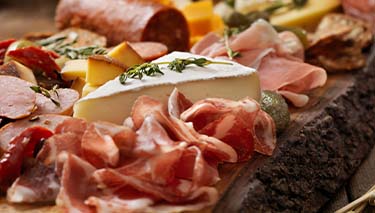Pregnant women are constantly warned about the dangers of listeria.
Listeria is a type of food-borne bacteria that may be found in a number of everyday foods. Listeria can also be found in soil, animal faeces, vegetation and sewage. The possibility is very high of listeria entering and contaminating our food supply, which is why we need to be very careful.
The level of listeria bacteria found commonly in foods is generally harmless to the average person with a healthy immune system. However, during pregnancy, if listeria contaminated food is eaten and an infection develops, both the mother and her baby are at risk. Pregnant women are at higher risk of developing an infection with listeria than other healthy adults. And the result of an infection can be fatal. This is because of pregnancy changes to metabolism and immunity, making them more susceptible.
The problem with listeria in pregnancy
Listeria can cause a rare but dangerous infection called listeriosis. If you contract listeriosis while pregnant the bacteria could reach your baby via the placenta. If this happens, there is a risk of a number of complications. These include blood poisoning, miscarriage, and premature labour or even stillbirth.
One difficulty with listeriosis is that it can easily be misdiagnosed. This is because the symptoms are easy to confuse with having influenza or another viral illness. Common, shared symptoms include; a fever or chills, muscle aches and back pain, diarrhoea and nausea. The symptoms can take a few days or up to six weeks to appear, which can make diagnosing an infection difficult.
The good news is that listeriosis in pregnant women is very rare in Australia and New Zealand. If you avoid soils and foods at risk of being contaminated it's very unlikely that you will be infected. It is also important to follow safe hygiene habits when preparing and cooking foods.
Treatment for listeriosis
If you think you might have come into contact with listeria while you are pregnant and are feeling unwell, tell your healthcare professional. A blood or amniotic fluid test can confirm whether you have contracted listeriosis.
If your results are positive, a course of antibiotics will help to fight the infection. If diagnosed early enough, antibiotic treatment can also prevent the infection from being passed to your baby.
Avoiding listeria in pregnancy
Practising good food hygiene is the best way to avoid coming into contact with listeria.
Practise these simple steps whenever you are preparing or choosing food to eat:
- Always wash your hands
- Thoroughly wash fresh fruit and vegetables
- Cook all food, especially meat, seafood and dairy products, all the way through to kill the bacteria
- Serve and eat your meals while they are hot
- Reheat left overs or ready to eat foods until they are steaming hot
- Store any leftovers in the fridge immediately and eat within 12 hours of cooking
- Avoid all raw or partially cooked meats, seafood and soft cheeses
- Wash all cooking utensils and chopping boards with hot soapy water
- Avoid eating any food you're not sure about
Certain foods are at higher risk of contamination with listeria. To be on the safe side, avoid these foods during pregnancy:
- Soft white and blue cheeses
- Soft-serve ice cream
- Any dairy products made from un-pasteurised milk
- Deli meats and cold processed meats
- P t
- Pre-made and refrigerated salads, including fruit salads
- Seed sprouts
- Raw or smoked seafood including sashimi and oysters
- Cooked and chilled seafood including prawns
- Smoked salmon or trout
- Sushi
- Cold cooked chicken
Speak with your maternity care provider if you're unsure about safe foods to eat during your pregnancy. Check here for more information about Listeria and pregnancy.
Reviewed and edited by Jane Barry, midwife and child health nurse on 3 June 2021.


Last Published* May, 2024
*Please note that the published date may not be the same as the date that the content was created and that information above may have changed since.




















